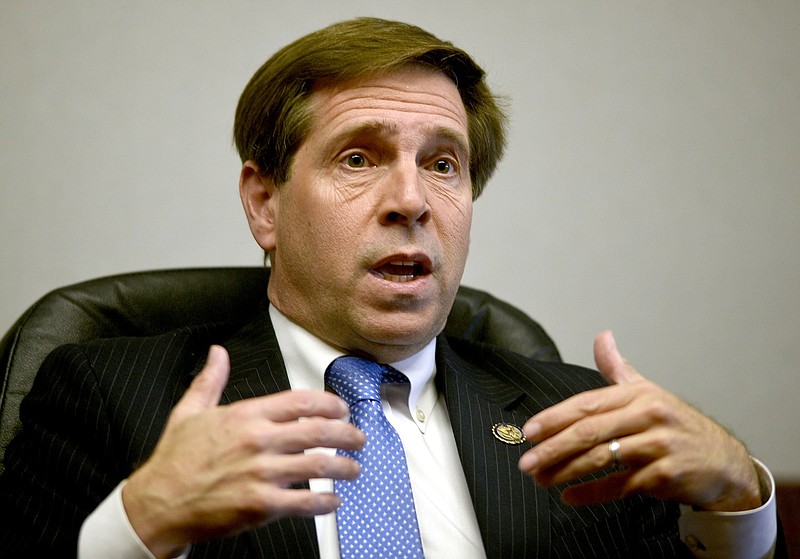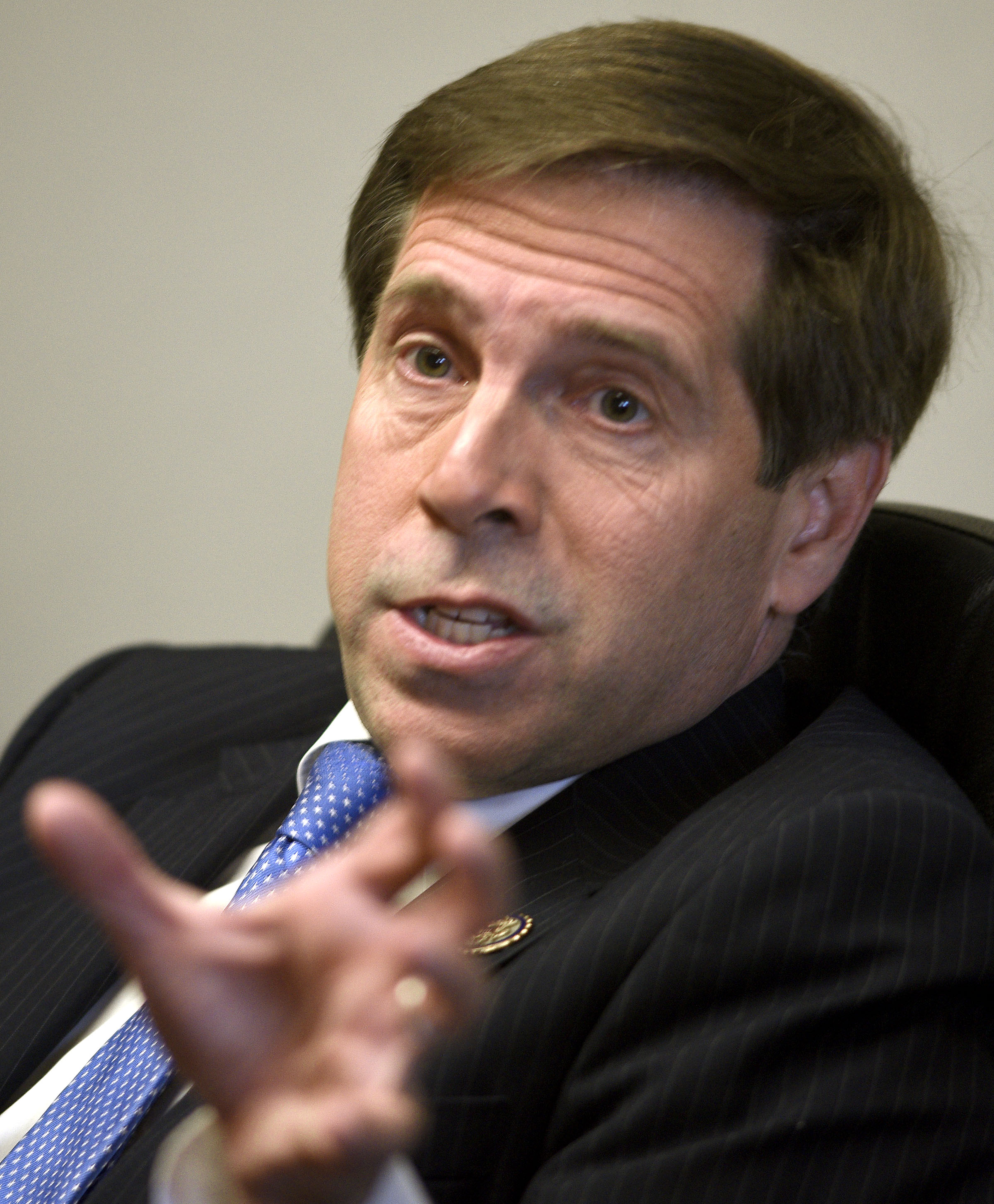U.S. Rep. Chuck Fleischmann, R-Tennessee., said Tuesday he will await the release of full details from the bipartisan border spending deal reached by top House and Senate appropriations leaders "before drawing a conclusion" on whether he will back the compromise.
The Ooltewah Republican, a member of the conference committee that's been working to reach a deal to avert another federal government shutdown, said in an interview the "framework for an agreement has been laid out but not codified, not written down with the specifics.
"I am waiting to receive a copy of that which will include not only the Homeland Security appropriations bill but also the six other bills that have gotten mixed up in this whole debate," added Fleischmann, the ranking Republican on the Appropriations Homeland Security Subcommittee, as well as a member of the House and Senate conference committee.
Earlier in the day, President Donald Trump told reporters at the White House that at first blush, "I'm not happy" over the compromise.
But the president also stopped short of saying he would veto the bill, declaring he is "adding things to it" and predicting there won't be another lapse in government funding before the midnight Friday deadline, the Washington Post reported.
Fleischmann noted that "of course, we are waiting to find out whether or not the president of the United States will sign the bill or not. At this point in time, that's unclear."
He said that once lawmakers get the draft, his understanding is the House and Senate are going to move quickly "to get legislation on the floor this week as opposed to going through the normal 72-hour time frame."
Senate Majority Leader Mitch McConnell, R-Kentucky, told Capitol Hill reporters Tuesday that "I hope [Trump] signs the bill," CNN reported. "And, second, I think he ought to feel free to use whatever tools he can legally use to enhance his effort to secure the border."
Earlier Tuesday, U.S. Rep. Tom Graves, R-Georgia, a House Appropriations Committee member and like Fleischmann a member of the House and Senate conference committee, voiced skepticism about the spending compromise after Senate Appropriations Committee Chairman Richard Shelby, R-Alabama, announced that an agreement was reached "in principal" to avoid another shutdown.
The last shutdown, which lasted 35 days from December into January, was the longest in U.S. history. Democrats formally took over control of the House in January.
Graves, a Ranger Republican, wrote on Twitter that "I haven't signed off on the reported 'deal' nor have I seen it. Based on the reports, I have concerns. Lots of questions, too."
Hard-right commenters blasted the agreement after it became public Monday night. Sean Hannity called it a "garbage compromise" and Ann Coulter tweeted, "RNC thinks we're as dumb as Democrats."
According to multiple news accounts, the deal hinged on immigration-related compromises. That includes $1.375 billion for a physical barrier along 55 miles of the U.S.-Mexico border. As part of the Democrats' concession, the fencing would include the steel slats that Trump has asked for.
As Coulter and others criticized Trump in December, he vetoed a Republican-passed bill that contained $5.7 billion for his proposed "wall."
On the other side of the proposed deal, according to Politico, Republicans agreed to fund 40,520 detention beds for Immigratons and Customs Enforcement (ICE), a 17 percent reduction from current levels. Trump asked for funding for 52,000 beds.
But Fleischmann said that isn't his understanding of the agreement. "The real number is north of 45,000, with the ability to do another 13,000," the congressman said.
The "two big things in contention in negotiations were the barrier and ICE beds," Fleischmann said. "Those were the hot-button issues."
Contact Andy Sher at asher@timesfreepress.com or 615-255-0550. Follow him on Twitter @AndySher1. Contact Tyler Jett at tjett@timesfreepress.com or 423-757-6476.


